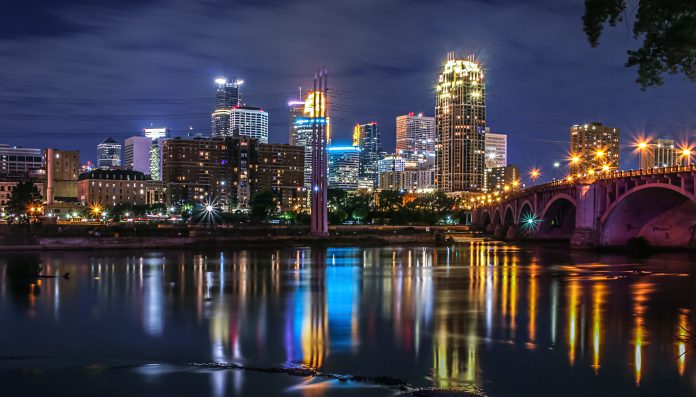Minneapolis is altering its approach to laws that penalise the acquisition and private usage of psychedelic substances.
On Friday, Mayor Jacob Frey ordered the city’s police force to cease the use of public money for the enforcement of most restrictions against hallucinogenic plants.
However, the city continues to enforce laws against the illegal sale of these plants, their transport to schools, or their usage while driving.
Minneapolis Police Chief Brian O’Hara voiced his agreement with the mayor’s directive in a statement.
When announcing the Minneapolis directive, Frey underscored the potential medicinal benefits of psychedelic substances for conditions such as depression and post-traumatic stress disorder (PTSD).
“Evidence indicates that these plants have potential therapeutic effects, and our responsibility is to make these benefits accessible to the public,” Frey stated.
“As our city, and indeed our society, wrestles with a rise in what are termed deaths of despair, it’s increasingly evident that these plants may be part of the solution.”
Some scientific bodies suggest that psilocybin, a compound present in psychedelic mushrooms, can rewire the brain’s neural pathways and help individuals dealing with problems such as depression, alcohol addiction, and PTSD.
A medication related to the anaesthetic ketamine has already been given the green light by the FDA to assist individuals with treatment-resistant depression.
However, medical professionals stress that further investigations are necessary to conclusively determine the efficacy of these drugs and fully comprehend the potential risks, as psychedelics can induce hallucinations.
The American Psychiatric Association has not yet endorsed the use of psychedelics in treatment, pointing out that the Food and Drug Administration has not given a final decision.
However, in 2018, the FDA did categorise psilocybin as a “breakthrough therapy” – a label designed to fast-track the development and review of drugs intended to treat serious conditions. MDMA, commonly known as ecstasy, has also received this designation in the context of PTSD treatment.
In June, the FDA put forward draft guidelines for researchers conducting clinical trials to assess psychedelic substances as potential treatments for a variety of medical disorders.
The Biden administration has also allocated funding to the National Institutes of Health and other institutions to carry out several projects exploring the potential mental and behavioural health benefits of psychedelic drugs.
Earlier this year, Oregon blazed the trail by becoming the first state to legalise the adult use of psilocybin.
Last year, the voters of Colorado chose to decriminalise the substance. Denver was the trailblazer city in decriminalising personal possession and use of psilocybin in 2019.
A Minneapolis organisation championing immigrant rights and criminal justice reform praised the mayor’s directive.
“This signifies a crucial initial step in reversing the damage inflicted by the war on drug users, a campaign initially designed to disproportionately target communities of colour,” stated Jessica Nielson, a founding member of the DecriMN Coalition. “These natural remedies and their use by indigenous communities predate any current legislation.”


